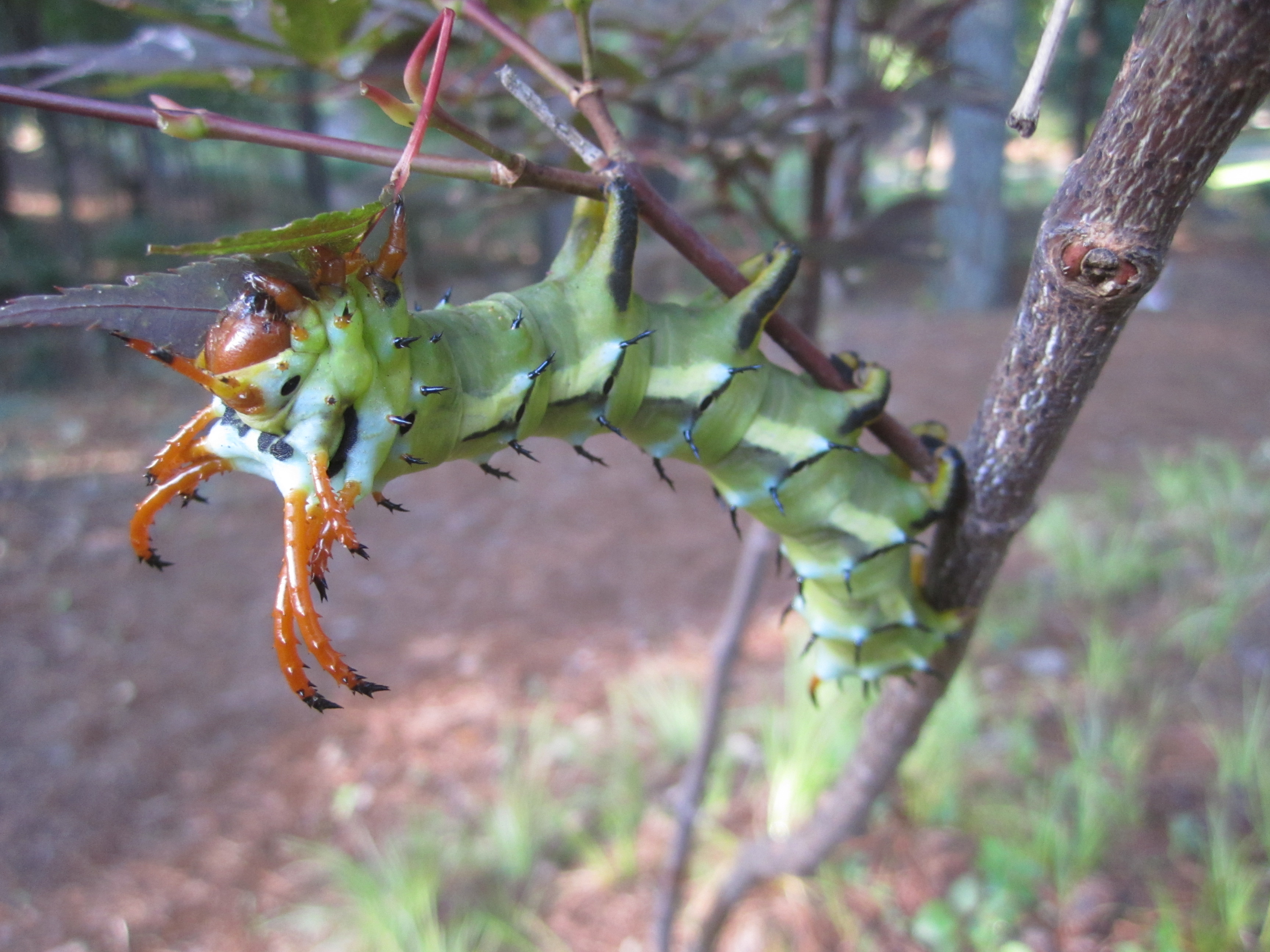
Hickory Horned Devil Immature Form Walter Reeves The Gardener
Adult hickory horned devils are called Regal Moths, or Royal Walnut Moths. These big, heavy-bodied moths have a wingspan of four to six inches and are tan and orange with yellow markings. This is the rare "Regalis Moth" that was so eagerly sought by Elnora in the 1909 novel, and subsequent movies, A Girl of the Limberlost. Blake Layton.

Hickory Horned Devil Photograph by Jeffrey Lepore Fine Art America
The spectacular caterpillar of this species is famous enough to have its own name: hickory horned devil. When mature, they can be up to 5½ inches long. There's really no mistaking them.
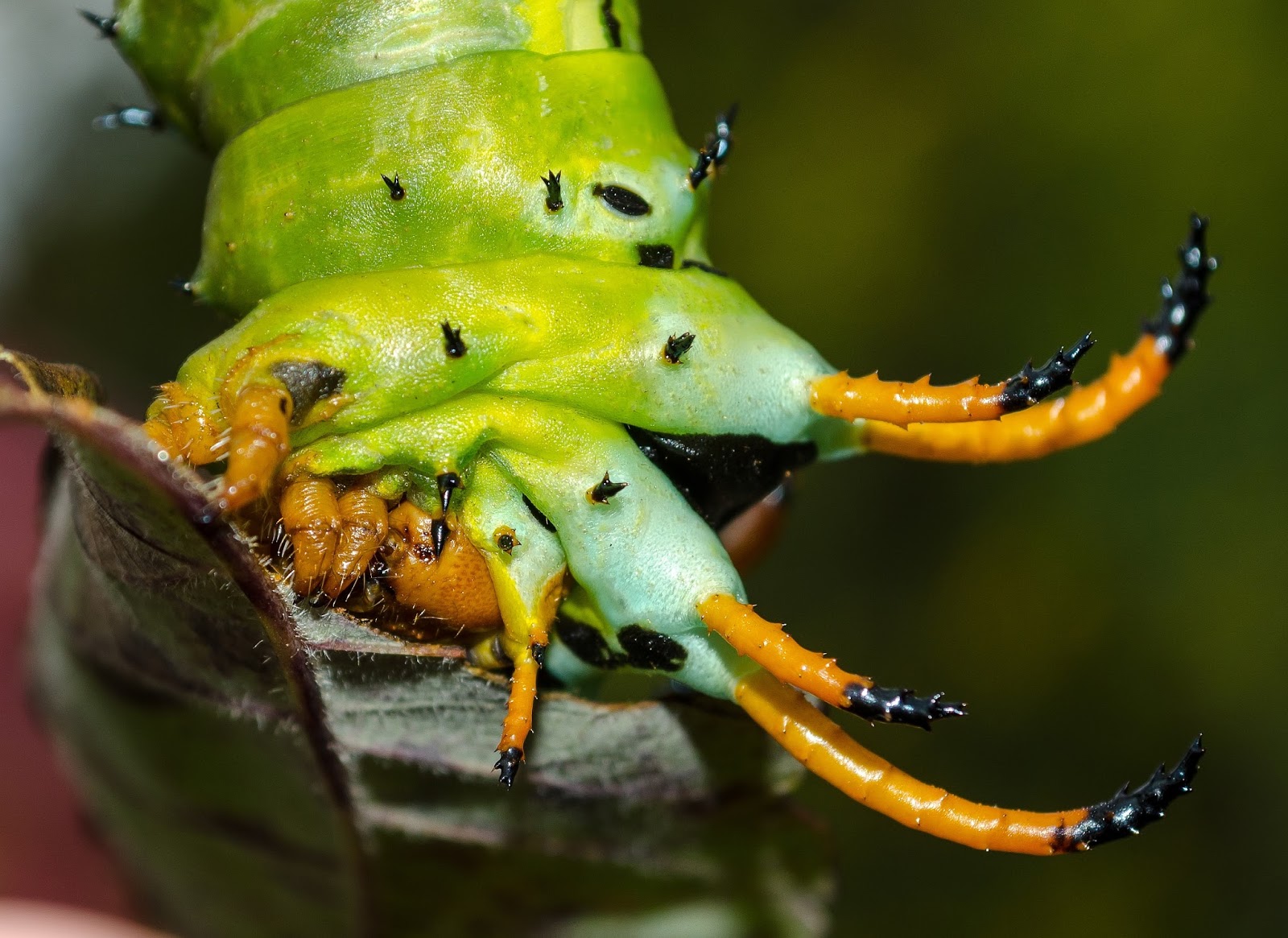
On the Subject of Nature Hickory Horned Devil
Hickory horned devils (Fig. 1) are caterpillars of the regal moth or royal walnut moth, Citheronia regalis (Lepidoptera: Saturniidae). This native species can be found in much of the eastern half of the United States to Texas and the Midwest, but are more common in the south. Figure 1. Hickory horned devil (Clifford Andrews, Bugwood.org).
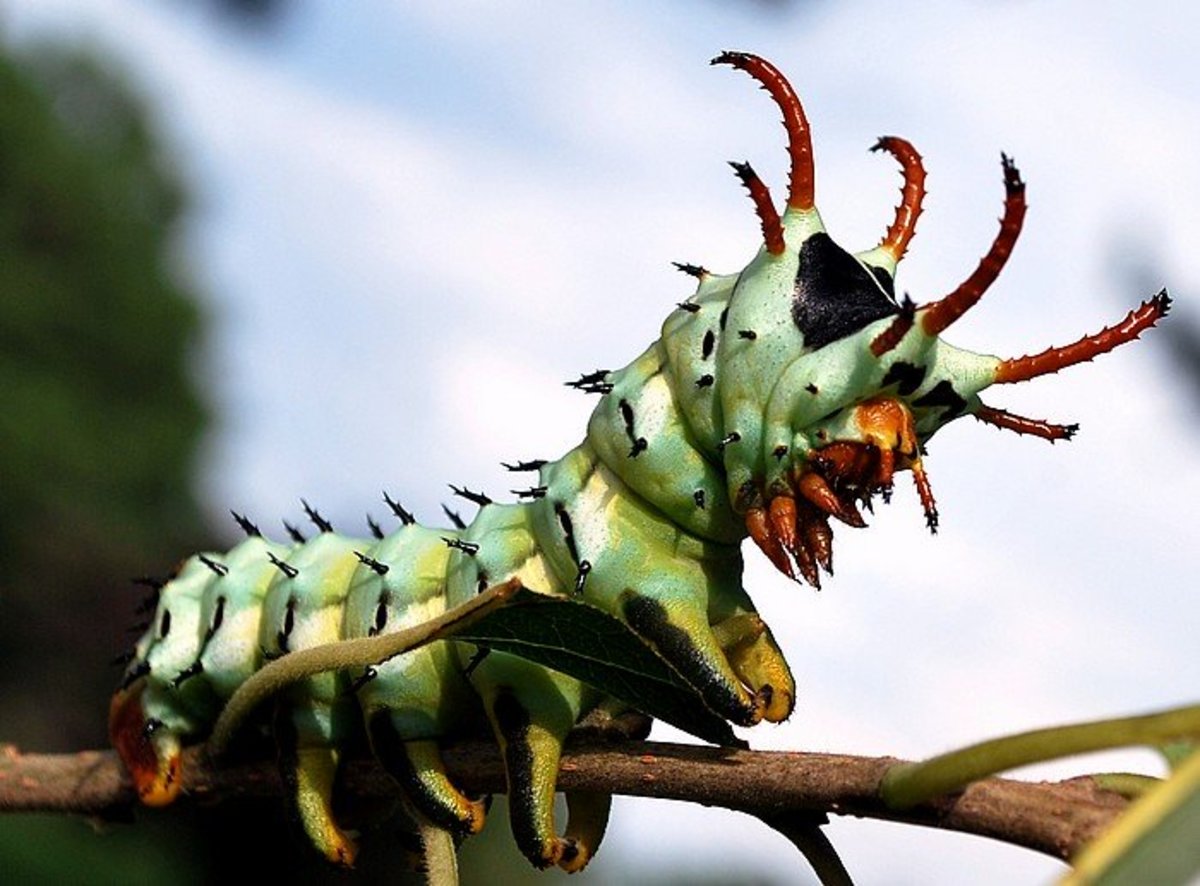
Meet the Hickory Horned Devil Caterpillar, Fierce in Appearance but Harmless Owlcation
Hickory horned devil caterpillars look fierce and can be almost as big as a hot dog, but they're harmless. They have green bodies (that become turquoise as they age) and lots of prickled, orangey horn-like structures on their heads.
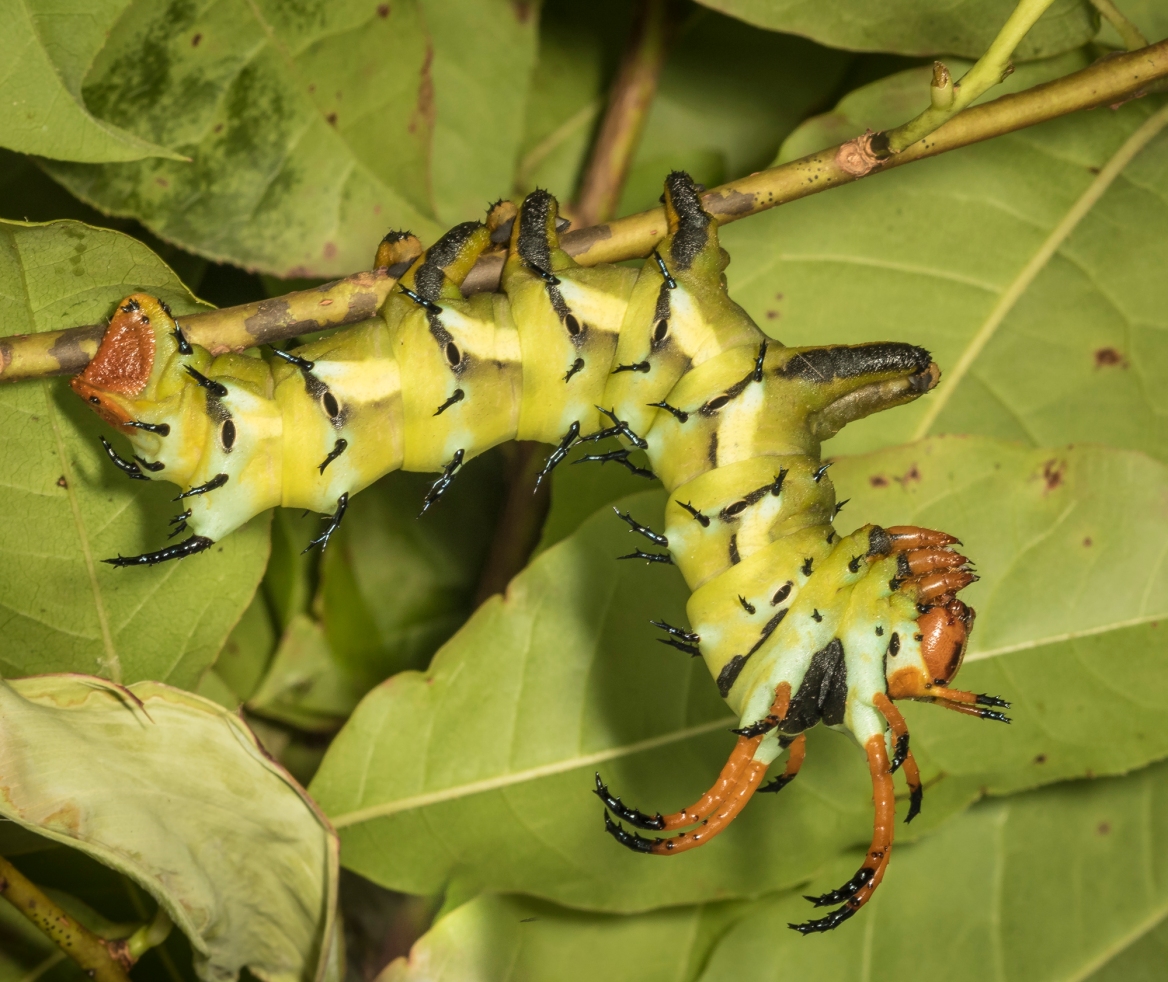
hickory horned devil Roads End Naturalist
The Hickory Horned Devil is a fascinating creature that you should know about. Known as the largest caterpillar in North America, this insect is the larval stage of the Regal Moth, scientifically named Citheronia regalis. Despite their alarming appearance, Hickory Horned Devils are actually harmless creatures.
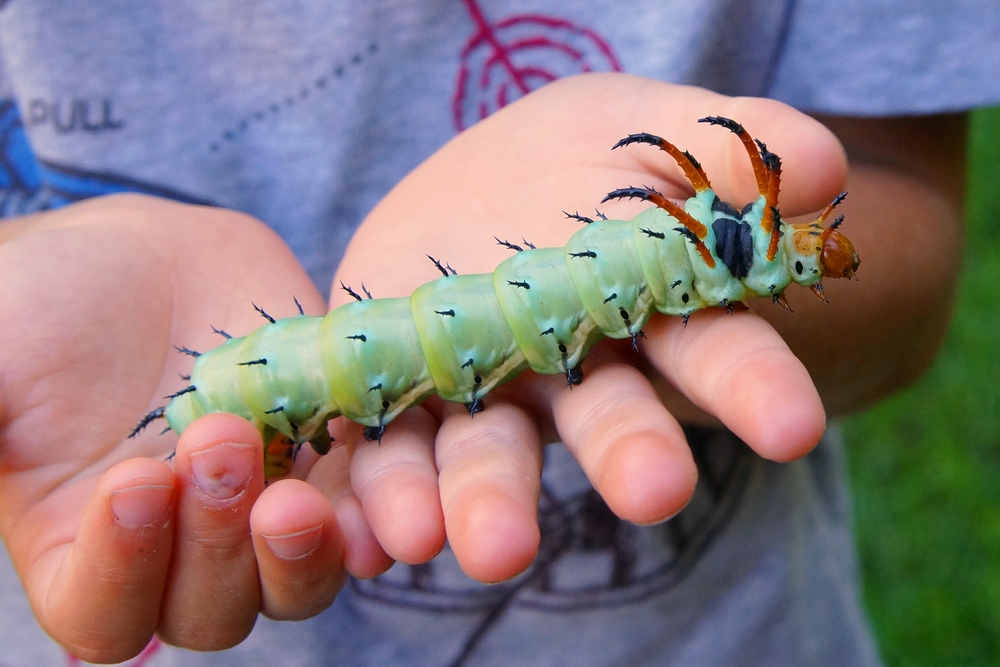
Meet the Hickory Horned Devil, a Fierce but Harmless Caterpillar Kids Discover
As you can see, a Hickory-horned Devil Caterpillar is huge, but it also has predators, which include birds (they are the primary food source for many birds), ladybird beetles, yellow jackets and human beings. But, so is the regal moth with a wingspan of 4-6 inches (and, females are larger than males). They are common southward but rare northward.
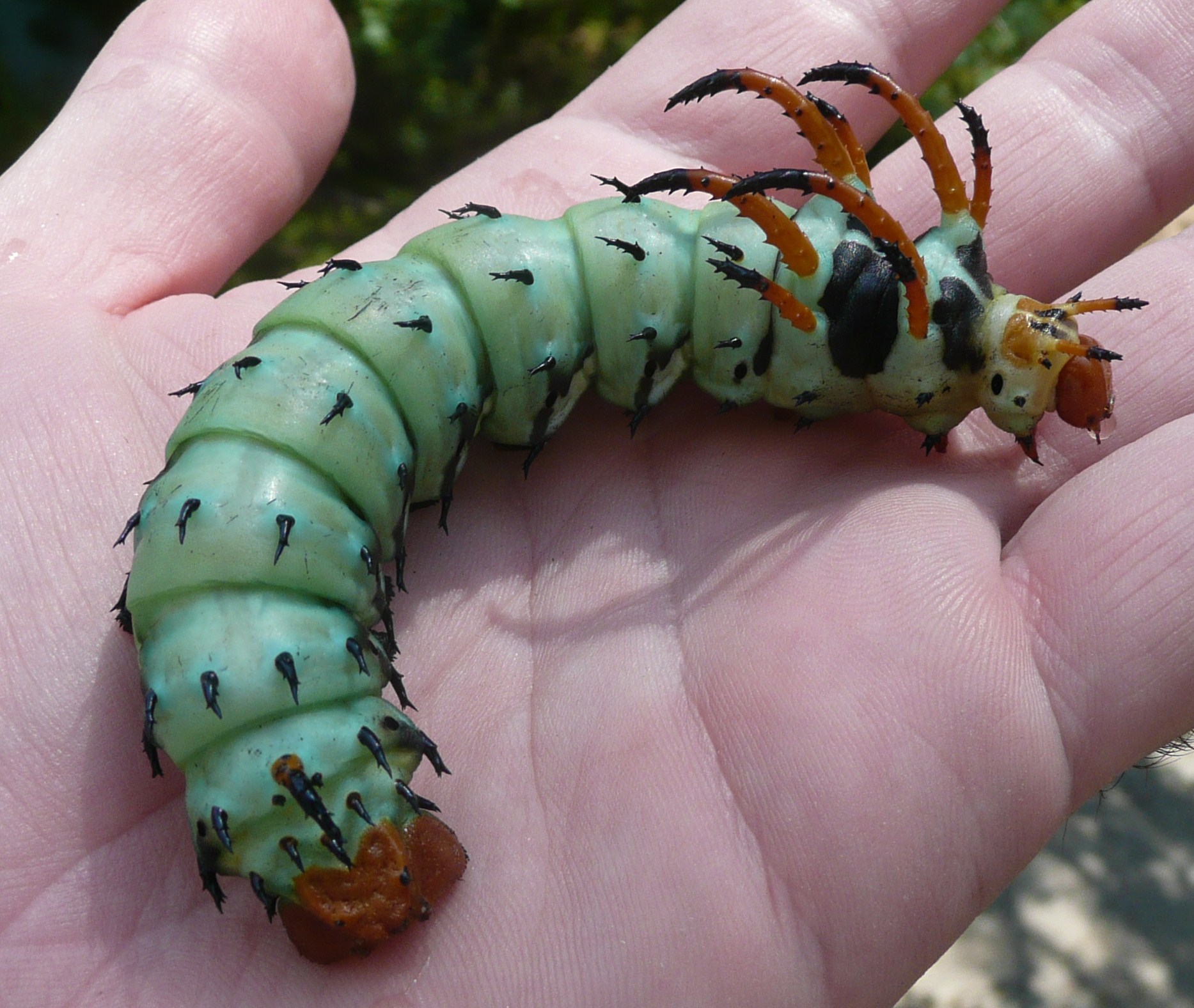
Insect Spotlight Hickory Horned Devil Houseman Services
Royal Walnut Moth / Hickory Horned Devil: Regal Moth Life Cycle Video / Citheronia regalis Life CycleHorned Devils are large moths from the USA! Watch the.
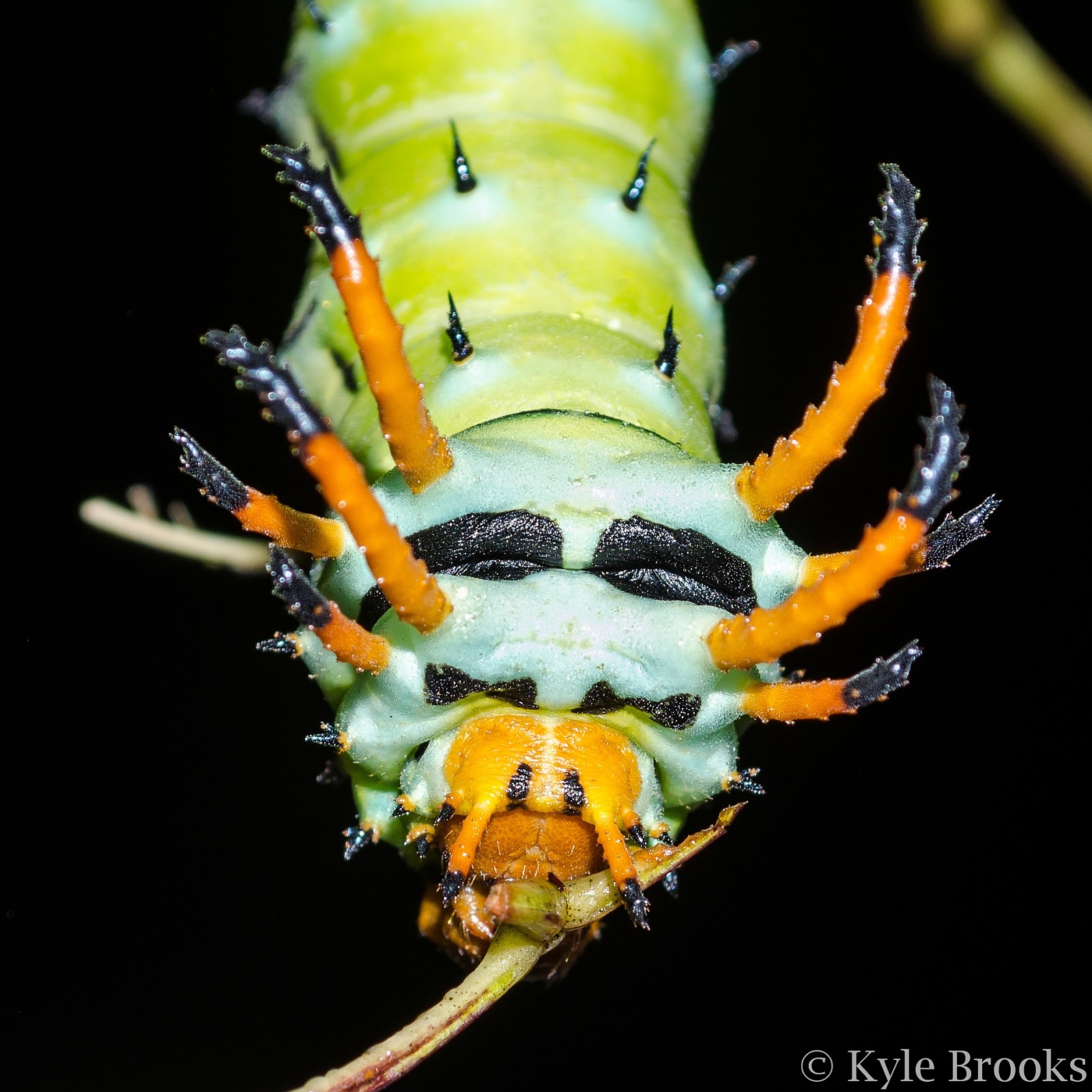
On the Subject of Nature Hickory Horned Devil
Hickory horned devils are large, winged insects that are native to North America. They are most commonly found in wooded areas and are known for their long, curved horns. These horns are used to help the hickory horned devil pierce the bark of trees in order to reach the sap inside.
Hickory Horned Devil Rock Bridge Trees Pecan Trees
The hickory horned devil is among the largest of our native saturniid caterpillars. It is 12.5 to 14 cm in length—about the size of a large hot dog. The caterpillars vary slightly in color, but are commonly blue-green.

Hickory Horned Devil What's That Bug?
Hickory Horned Devil This caterpillar is the larva of the Regal Moth, also known as the Royal Walnut Moth. The larva has a scary, frightful appearance resembling a small dragon with up to five pairs of long, curving hornlike structures over the back of its thorax with the rest of the body covered with shorter spikes.
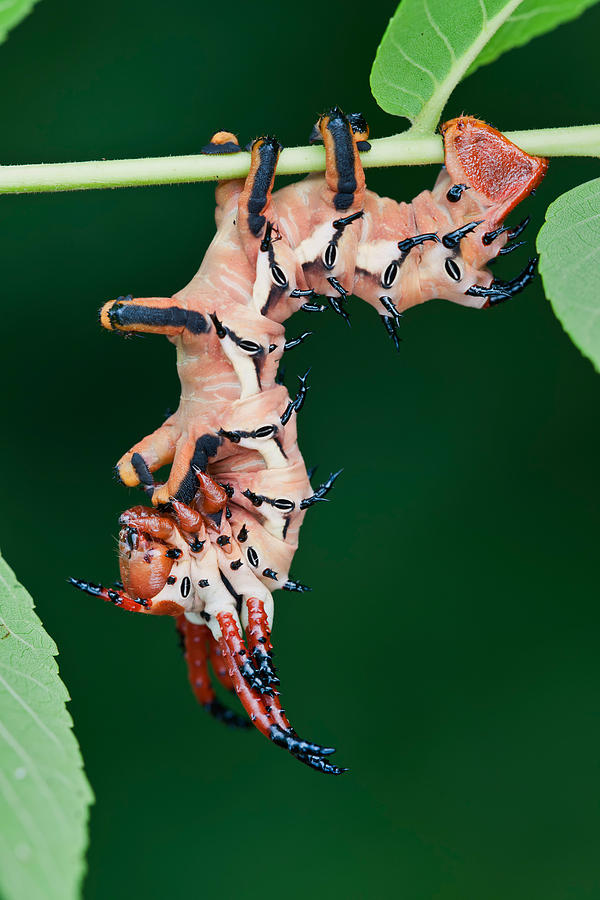
Hickory Horned Devil Photograph by Jeffrey Lepore Fine Art America
Hickory Horned Devil - Regal Moth Ilse Knatz Ortabasi 12.7K subscribers Share 175K views 15 years ago Meet the largest caterpillar in North America! And watch it turn into a beautiful moth.
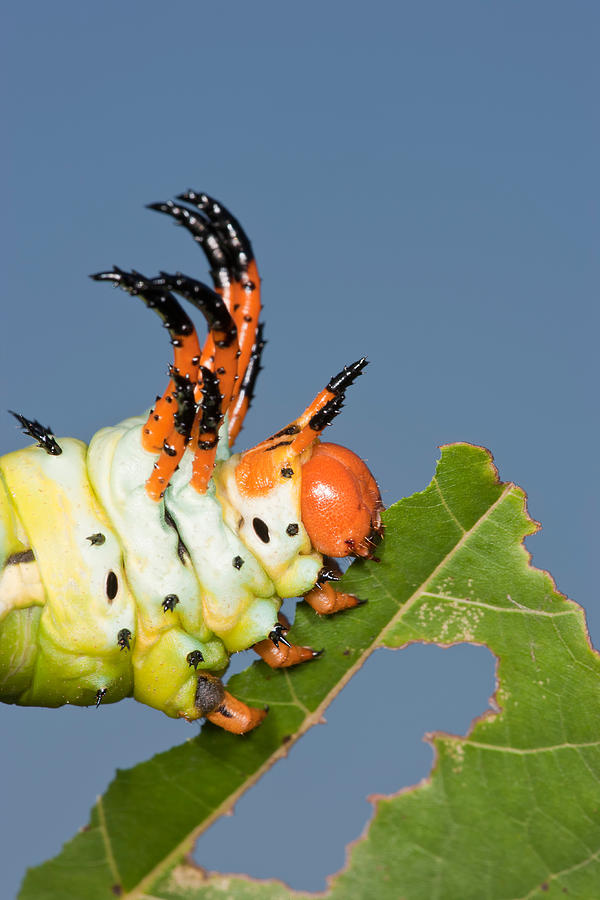
Hickory Horned Devil Photograph by Jeffrey Lepore Fine Art America
The hickory horned devil is our largest caterpillar. The regal moth, adult of the hickory horned devil. Host Plants Hickory horned devils are sometimes found on walnut, hickories, pecan, sweetgum, persimmon, and even sumac. The small caterpillars eat very small amounts of foliage, but the later stages consume considerable amounts of leaves.

Meet the Hickory Horned Devil Featured Creature
Royal Walnut Moth Hickory Horned Devil (caterpillar) Synonyms and other taxonomic changes Citheronia regalis (Fabricius, 1793) original combination Bombyx regalis Fabricius, 1793; Ent. Syst. 3 (1): 436 syn. Citheronia saengeri Neumoegen, 1891 syn. Citheronia infernalis Strecker, 1883 * phylogenetic sequence #224200 Numbers
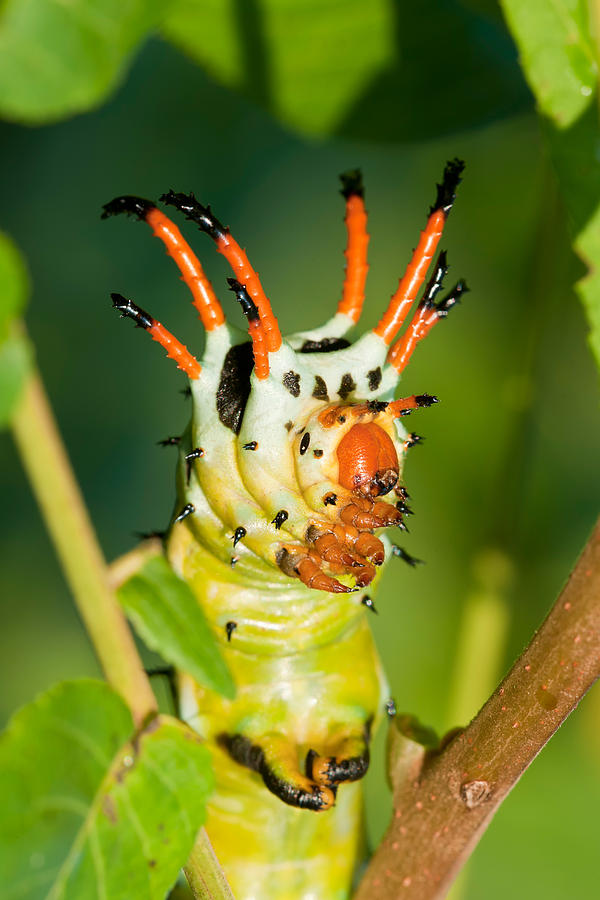
Hickory Horned Devil Photograph by Jeffrey Lepore Fine Art America
common name: hickory horned devil (larva), regal moth or royal walnut moth (adult) scientific name: Citheronia regalis (Fabricius) (Insecta: Lepidoptera: Saturniidae: Ceratocampinae) Introduction - Distribution - Description - Life Cycle - Hosts - Natural Enemies - Selected References Introduction (Back to Top)
Hickory horned devil r/natureismetal
Young hickory horned devil caterpillars may be orange or brown (Fig. 2), but the full-grown caterpillars are usually green with black and cream markings down the sides of their bodies (Fig. 1). Some mature hickory horned devils also have light blue markings (Fig. 3). Caterpillars close to pupation can even be a striking turquoise green.
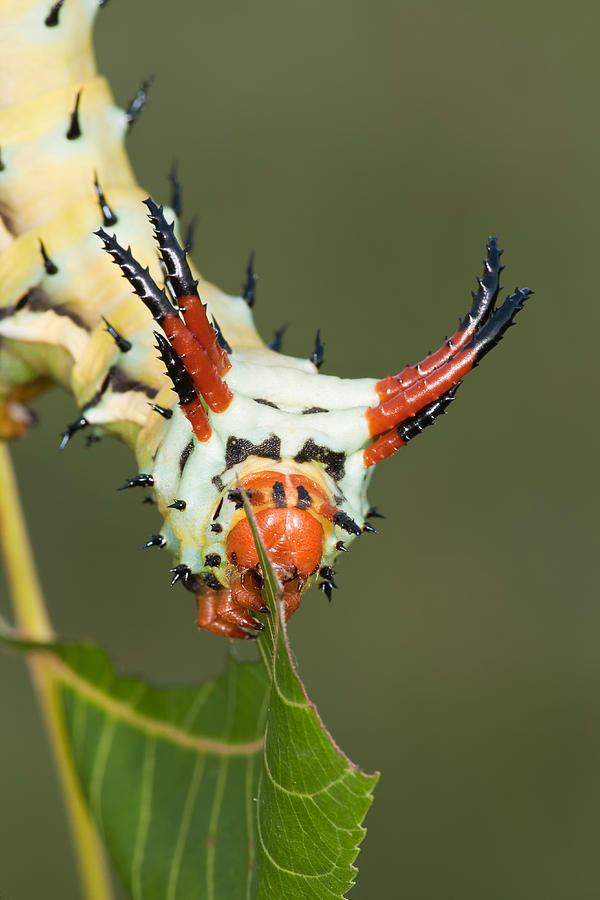
Hickory Horned Devil Photograph by Jeffrey Lepore
Royal Walnut Moth Citheronia regalis (Fabricius, 1793) | Butterflies and Moths of North America.